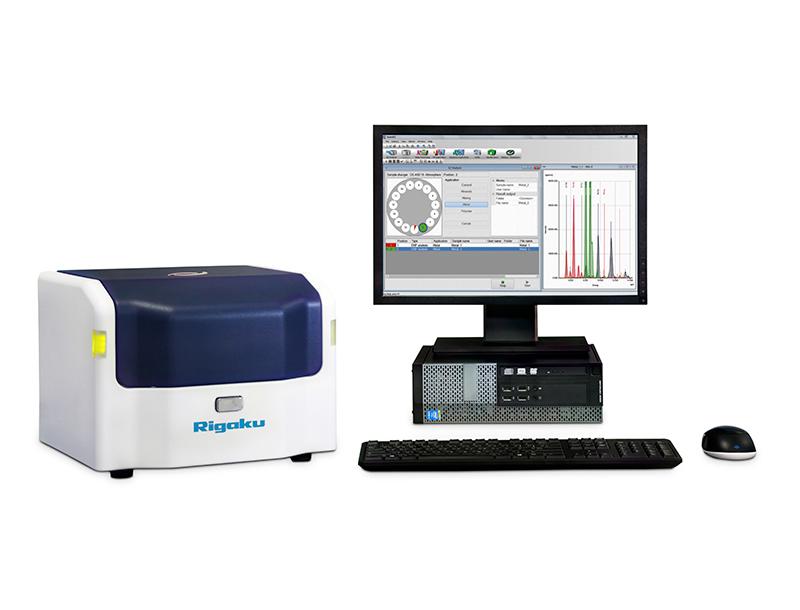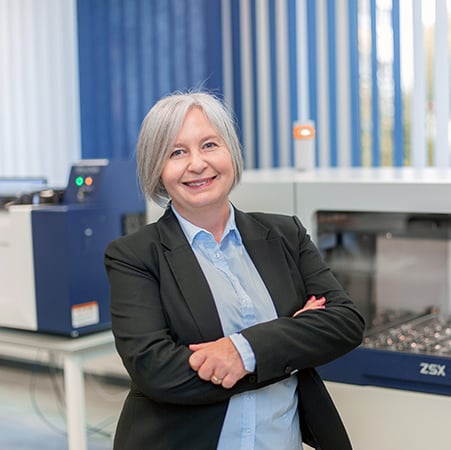Analysis of Metals in Aerosols on Air Filters

Scope
Measurement of metals, especially toxic heavy metals, in aerosols on air filters is
demonstrated. Simple linear empirical calibration is discussed, and performance is shown for measurement precision and typical detection limits.
Background
Element analysis of aerosols and particulate matter released in smokestacks and other industrial gas discharge is vital to ensure that environmentally acceptable levels of toxic and hazardous elements are released properly into the air. Monitoring smoke or other gaseous waste is important in many areas, such as industrial manufacturing, coal-fired power plants, chemical and plastics production, etc., in order to minimize air pollution and the release of toxic metals in compliance with US EPA and other world and regional or local governing regulations. As a tool to help ensure compliance and proper release, Rigaku offers the NEX DE EDXRF analyzer with 60 kV excitation source and high-resolution and throughput silicon drift detector, giving analysts and technicians a fast, simple, yet powerful means for monitoring elemental analysis of air filters.
 Model: NEX DE
Model: NEX DE
Calibration
While heavier loadings may require a curved fit, analysis of the typical loadings shown here in the µg/cm2 range show a linear XRF response so single-point calibrations are suitable. A single-point linear empirical calibration was made for each element using the Standard Value loading levels shown in the Recovery and repeatability section.
Recovery and repeatability (precision)
To demonstrate typical measurement recovery and instrument precision, each calibration standard was measured in 10 repeat analyses. Fewer measurement conditions may be used depending on overall composition of the filter loadings.
| Units: µg/cm² | |||||
| Measurement condition |
Element | Standard value | Average value | Standard deviation | % RSD |
| Low-Z | Al | 54.3 | 53.9 | 0.18 | 0.3 |
| Si | 31.6 | 31.9 | 0.04 | 0.1 | |
| Low-Mid-Z | Cr | 46.2 | 45.9 | 0.06 | 0.1 |
| Ba | 41.3 | 41.6 | 0.02 | <0.1 | |
| High-Mid-Z | Ga | 23.8 | 23.4 | 0.05 | 0.2 |
| As | 25.5 | 25.2 | 0.04 | 0.2 | |
| Se | 19.9 | 20.0 | 0.03 | 0.2 | |
| Hg | 32.2 | 31.9 | 0.07 | 0.2 | |
| Pb | 60.3 | 60.7 | 0.09 | 0.1 | |
| High-Z | Ag | 22.6 | 22.5 | 0.06 | 0.3 |
| Cd | 48.1 | 48.2 | 0.09 | 0.2 | |
Conclusion
The Rigaku NEX DE combines filtered direct excitation with a high-performance SDD detector capable of 500,000+ cps throughput to deliver excellent sensitivity for the measurement of metals in aerosols on air filters. The NEX DE analyzer is capable of elemental analysis from Na – U, making the XRF technique ideal for other elements on air filters. For the measurement of light elements, Na – Cl, helium purge is used to remove air from the optical path and optimize analysis sensitivity. Elements from Cr and above can be easily measured in air without the need for helium purge.
The NEX DE analyzer also gives the user a very versatile tool not only for monitoring air filters, but also elemental analysis of solids, powders and liquids. This power and simplicity makes the analyzer an ideal tool for screening and monitoring particulate aerosol filers to help ensure industrial processes are environmentally sound and meet regulatory compliance.

Contact Us
Whether you're interested in getting a quote, want a demo, need technical support, or simply have a question, we're here to help.
